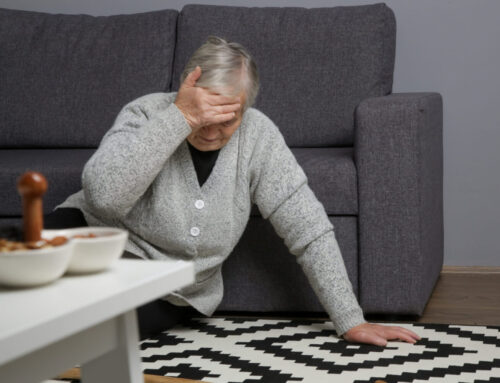If you have been experiencing knee pain walking, climbing stairs, or trying to stand, chances are you are eager for an upcoming knee replacement!
We don’t blame you. Immobility can make seniors feel depressed, frustrated, and limited in their personal own care.
Unfortunately, recovery can be as frustrating as the pain leading up to surgery. Many patients need a walker, crutches or a wheelchair after surgery. For several weeks after surgery patients will require support cleaning, running errands, bathing, and doing housework. We recommend relying on professionals, like us, so we can not only help with daily tasks but ensure you do not suffer from infection!
The Mayo Clinic recommends doing the following six steps prior to surgery to ensure safety:
- Create a living space on one floor since climbing stairs will be difficult
- Install safety railing to showers and bathrooms
- Get a stable chair with a firm back and seat cushion along with a footstool to elevate your leg
- If you have a low toilet, arrange for a toilet seat raiser with arms to make standing easier
- Get a stable bench or stool for your shower
- Remove loose rugs or cords to prevent falls
It will take between three to six weeks after surgery for patients to resume regular activities like driving or shopping. While the recovery process can feel long, the good news is that your knee replacement can last up to 15 years! Our physical therapy team works with your surgeon to help you progress in mobility and strength after surgery. For the best recovery, it is critical that you follow doctor and PT orders. We help patients get the most out of their new knee and freedom with nurse-directed care!
It is critical to have a skilled set of eyes monitoring your progress after surgery.
Our nurse-directed home care professional look out for the following after knee replacement surgery:
- Signs of infection
- Signs of blood clots in the leg vein or lungs
- Signs of heart attack
- Signs of stroke
- Signs of nerve damage
- Fever greater than 100 F (37.8 C)
- Shaking chills
- Drainage from the surgical site
- Increasing redness, tenderness, swelling and pain in the knee
Unskilled eyes can easily overlook subtle signs related to serious issues that require immediate medical attention. The right home care team helps patients recover, gain peace of mind, and coordinates with doctors or family for patient success!


